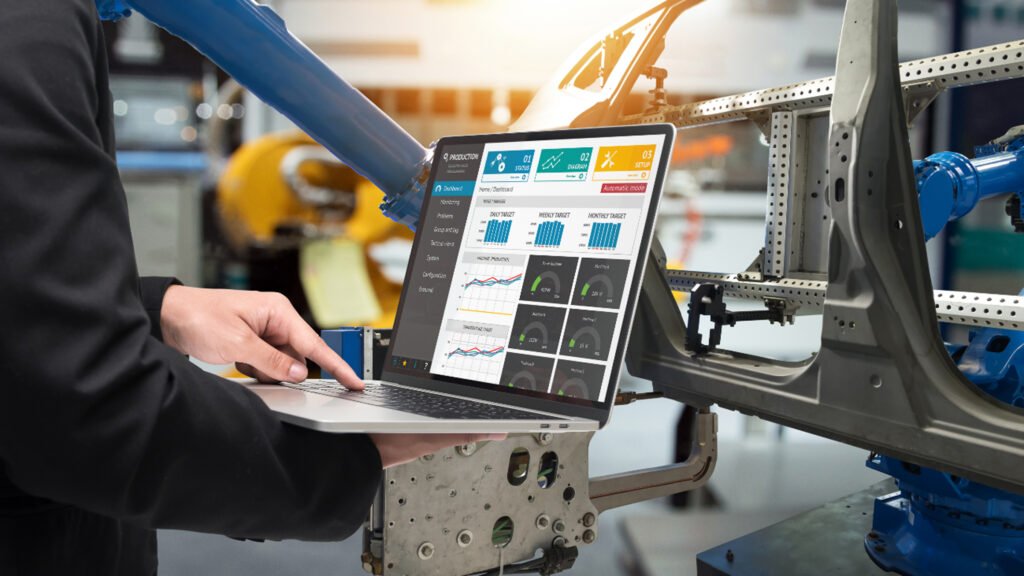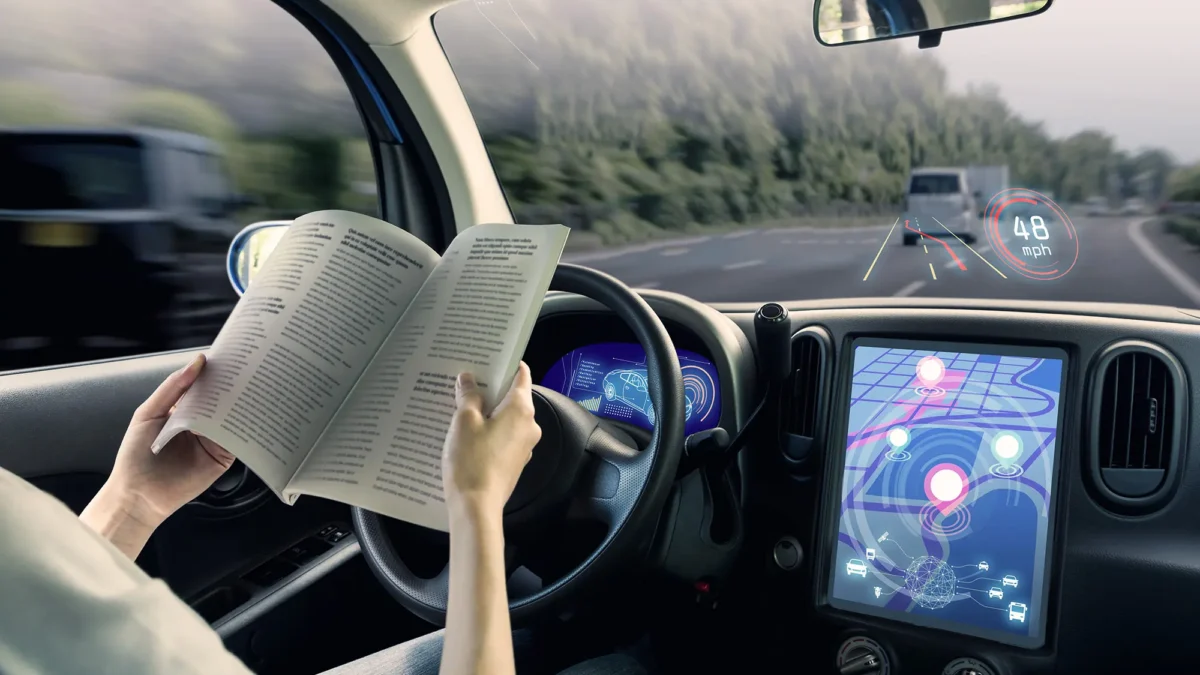AI’s Impact on the Automotive Industry: Beyond Autonomous Vehicles
Artificial intelligence (AI) is driving a transformative wave across numerous industries, and the automotive sector is no exception. While autonomous vehicles have captured much of the public’s attention, AI’s influence extends far beyond self-driving technology. From revolutionizing vehicle design and manufacturing to enhancing customer experiences and improving safety standards, AI is fundamentally reshaping the automotive landscape. This blog explores how AI is impacting the automotive industry in ways that go beyond autonomous vehicles, highlighting the innovations and advancements that are propelling the industry into a new era of efficiency, safety, and connectivity.
The Transformative Role of AI in the Automotive Industry
In recent years, artificial intelligence (AI) has emerged as a cornerstone of innovation in the automotive industry, revolutionizing not only how vehicles operate autonomously but also how they are manufactured, serviced, and experienced by consumers. While the concept of self-driving cars often dominates headlines, AI’s influence extends far beyond autonomous vehicles, permeating every aspect of the automotive lifecycle.
AI in Design and Manufacturing
One of the most profound impacts of AI in automotive lies in the realm of design and manufacturing. Traditional methods of vehicle design have been augmented and, in some cases, replaced by AI-driven algorithms that optimize aerodynamics, safety standards, and even aesthetic appeal. Computational design processes powered by machine learning analyze vast datasets to generate designs that are not only innovative but also highly efficient in terms of production and performance.
Moreover, AI has streamlined manufacturing processes, enhancing precision and reducing defects through predictive analytics. Predictive maintenance, facilitated by AI, allows manufacturers to anticipate and address potential issues before they escalate, thereby minimizing downtime and improving overall operational efficiency.

Enhanced Driving Experience
In addition to its impact on the manufacturing floor, AI is improving the driving experience itself. From personalized in-car assistants that adapt to drivers’ preferences to predictive analytics that optimize fuel efficiency based on driving patterns, AI technologies are making vehicles smarter and more responsive to their environment and users.
AI in Customer Interaction and Support
The automotive industry has also been transformed by incorporating AI into customer interactions.Virtual assistants powered by natural language processing (NLP) enable seamless communication between drivers and their vehicles, providing real-time updates on traffic, weather conditions, and maintenance schedules. AI-driven customer service platforms analyze customer feedback and sentiment to improve service quality continuously, fostering stronger relationships between automotive brands and their clientele.
Safety and Autonomous Driving
Of course, AI’s impact on safety cannot be overstated. Advanced driver-assistance systems (ADAS) leverage AI to enhance vehicle safety by alerting drivers to potential hazards, automatically adjusting vehicle speed and trajectory, and even preemptively deploying safety measures such as braking or steering assistance in critical situations. These technologies not only reduce the likelihood of accidents but also pave the way for fully autonomous driving systems that promise to redefine mobility as we know it.
The Future Landscape
In the future, the integration of AI with advanced technologies like Internet of Things (IoT) and 5G connectivity presents significant potential for the automotive industry. AI-powered smart cities could optimize traffic flow and reduce congestion, while autonomous fleets of electric vehicles could transform urban transportation and logistics. The possibilities are as vast as they are exciting, marking a new era in automotive innovation driven by artificial intelligence.
Embracing AI: The Future of Innovation in the Automotive Industry
Artificial intelligence (AI) is not just reshaping the automotive industry—it’s redefining it. Beyond the buzz around autonomous vehicles, AI is profoundly transforming every aspect of the automotive industry. It is crucial in shaping the future of mobility, revolutionizing vehicle design, enhancing customer experiences, and improving safety standards. AI-driven technologies optimize manufacturing processes, enabling the delivery of vehicles that are not only technologically advanced but also environmentally sustainable. Through predictive analytics and machine learning algorithms, operational efficiency is enhanced, and production costs are minimized, all while maintaining the highest standards of quality and safety.
Furthermore, integrating AI into the driving experience itself has led to the development of intuitive in-car systems that learn and adapt to individual preferences, providing a seamless and personalized journey for every driver. These advancements in AI-powered customer interaction have strengthened relationships between automotive brands and their customers, ensuring that their needs are not only met but anticipated.
Looking forward, the possibilities that AI holds for the future landscape of mobility are exciting. Continued investment in AI-driven research and development envisions a future where smart cities seamlessly integrate with autonomous vehicles, optimizing traffic flow and reducing environmental impact. AI is poised to lead the charge towards a safer, more efficient, and more sustainable automotive industry.
The dedication to innovation and excellence remains unwavering across the industry. Embracing AI not just as a tool but as a cornerstone of the future of mobility is essential. This transformative journey towards AI-powered vehicles promises to redefine what it means to drive and commute in the 21st century.
You may also like:The Evolution of Machine Learning Algorithms
Conclusion
AI’s impact on the automotive industry is both profound and expansive, touching every aspect of vehicle design, manufacturing, and customer interaction. While autonomous vehicles remain a significant focus, AI’s role in enhancing safety, improving efficiency, and personalizing the driving experience demonstrates its broader potential. As the industry continues to innovate and integrate AI-driven technologies, the future of mobility looks increasingly promising. Embracing AI is not just about adopting new tools but about fundamentally rethinking how we approach transportation, aiming for a safer, more efficient, and more connected world.
FAQs
1. How is AI used in automotive design?
AI is used in automotive design to optimize aerodynamics, safety standards, and aesthetics through machine learning algorithms that analyze vast datasets, resulting in innovative and efficient vehicle designs.
2. What are AI-driven manufacturing processes?
AI-driven manufacturing processes involve the use of predictive analytics and machine learning to enhance precision, reduce defects, and anticipate maintenance needs, thereby improving operational efficiency and reducing downtime.
3. How does AI enhance the driving experience?
AI enhances the driving experience by integrating personalized in-car assistants, predictive analytics for fuel efficiency, and adaptive systems that respond to individual driving patterns and preferences.
4. What role does AI play in vehicle safety?
AI plays a crucial role in vehicle safety through advanced driver-assistance systems (ADAS) that alert drivers to potential hazards, adjust vehicle speed and trajectory, and deploy safety measures like braking or steering assistance.
5. What is the future of AI in the automotive industry?
The future of AI in the automotive industry includes the integration of AI with IoT and 5G connectivity to create smart cities, optimize traffic flow, reduce congestion, and deploy autonomous fleets of electric vehicles, transforming urban transportation and logistics.
6. How does AI improve customer interaction in the automotive industry?
AI improves customer interaction by using natural language processing (NLP) for virtual assistants, providing real-time updates, and analyzing customer feedback to enhance service quality and foster stronger brand-customer relationships.
Image Source: Yandex.





